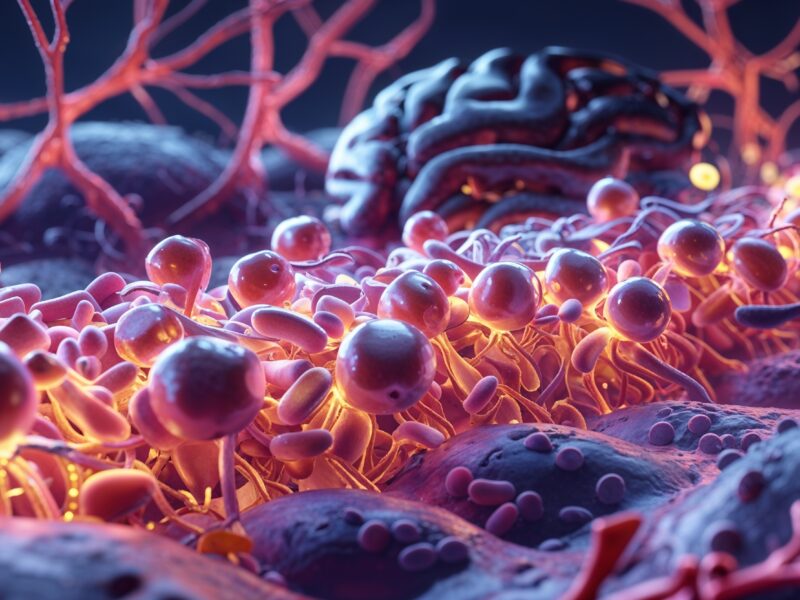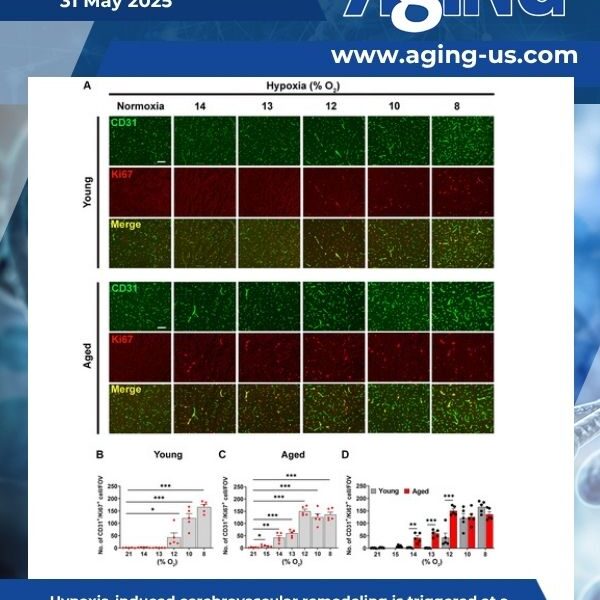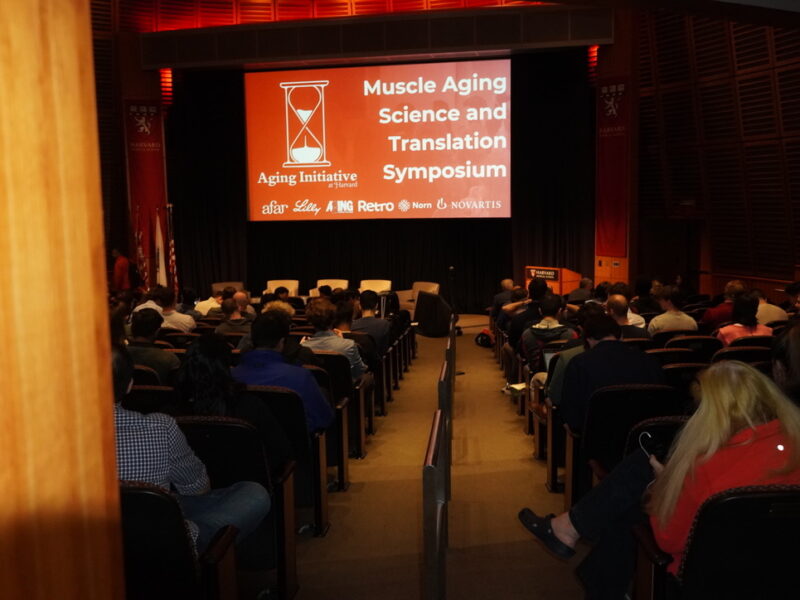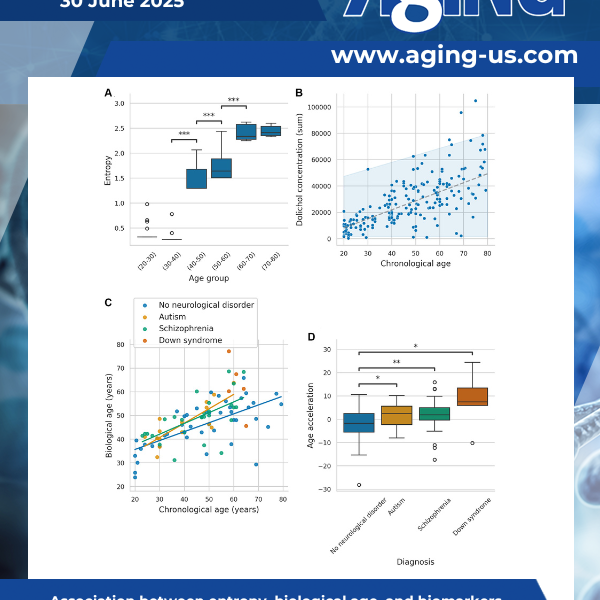This study introduces DoliClock, a lipid-based biological aging clock designed to predict the age of the prefrontal cortex using post-mortem lipidomic data. Significant age acceleration was observed in autism, schizophrenia, and Down syndrome.
Aging (Aging-US) Research

Recent discoveries in aging research reveal a powerful insight: the biological changes that lead to chronic diseases begin far earlier than most people realize—often in midlife, well before symptoms appear. This early phase offers a valuable opportunity for prevention.

As we age, our brains become more sensitive to stress and disease. A recent study sheds light on a lesser-known risk: reduced oxygen levels.

Impact Journals, the publisher of Aging, is once again proudly sponsoring the Open Access Team in the annual Ride for Roswell.

The Longevity & Aging Series has been honored with the Silver Award for “Excellence in Video/Film” at the inaugural EPIC Awards celebration on May 29, 2025, during the Society for Scholarly Publishing (SSP) 47th Annual Meeting in Baltimore, Maryland.

Chronic mild hypoxia (CMH; 8% O2) triggers transient blood-brain barrier (BBB) disruption, an effect greatly increased with age. As BBB disruption predisposes to neuronal death and cognitive decline, here we defined the hypoxic thresholds that trigger BBB breakdown in young and aged mice, and then defined the age at which hypoxia-induced BBB disruption significantly increases.

In a world where we are living longer but not always healthier, scientists are searching for ways to add life to our years, not just years to our lives. A recent study published in Aging (Aging-US), Volume 17, Issue 4, led by researchers at the National University of Natural Medicine, suggests that certain common foods, already known for their health benefits, might also help slow or even reverse epigenetic or biological aging.

Werner syndrome is a rare condition marked by accelerated aging. A recent study, featured as the cover paper in Aging (Aging-US), Volume 17, Issue 4, led by researchers at the University of Oslo and international collaborators, suggests that nicotinamide adenine dinucleotide (NAD+), a vital molecule involved in cellular energy production, may be key to understanding this disease and developing future strategies to manage it.

Aging (Aging-US) invites submissions for a Special Collection dedicated to the theme of cellular senescence, spanning its basic mechanisms, physiological and pathological functions, and clinical applications.

Aging (Aging-US) was proud to sponsor the Muscle Aging Science & Translation (MAST) Symposium, organized by the Aging Initiative at Harvard University on Friday, April 18, 2025. This important event brought together 350 participants—chosen from more than 1,300 applicants—including students, researchers, company founders, investors, and industry leaders.

